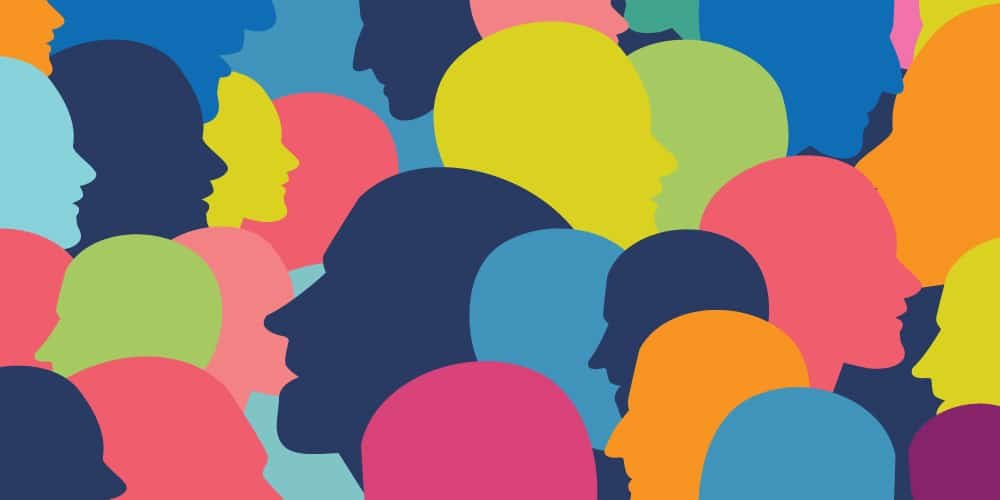Aaron Gleason presents his case on why the way to escape ridiculous culture warring is a multifaceted society which is characterized by genuine tolerance.
I recently came across an older article critiquing the Trumpian Right’s “affirmative action” for conservatives. Much of that article was laudable, and I recommend reading it. But there ιs a fundamental blind spot in most of these left vs right discussions that goes unaddressed by the author. This concerns the fundamental problem driving the culture war today.
The author writes:
“I do not think the left’s and right’s respective positions on this are of equal moral and factual merit. The social harms against marginalized groups, in the past and present, are indeed weightier than the harms against conservatives.”
If by harm we mean that Jim Crow or Apartheid were horrendously evil but James Damore being fired by Google was just remarkably stupid, then yes, the author is right. The social lynch mob and actual historical lynch mobs are not the same things and cannot be compared. Pepe is not a pogrom after all. Though in the case of activists like Ayaan Hirsi Ali the line that separates evil and constructive communication becomes very thin.
Yet it isn’t difficult to see how Pepe could lead to a pogrom. Historian Niall Ferguson had to acquire armed protection for himself and his wife Ayaan after their social lynch mobbing. Jim Crow didn’t come out of nowhere. It was based in biblical illiteracy, greed, fear of capitalism, and numerous other vices and bad ideas.
And so, yes, I agree with this author. The moral weight is not the same. Because if the concern over Damore, and those like him, should be framed as so-called viewpoint discrimination then discrimination against non-progressives is far more troubling than the overt discrimination of the marginalized. Because

“Some things benefit from shocks; they thrive and grow when exposed to volatility, randomness, disorder, and stressors and love adventure, risk, and uncertainty.”
Because this sort of discrimination isn’t actually exclusive to “non-progressives.” One need only glance at the motley crew known as the Intellectual Dark Web to see that contemporary viewpoint discrimination isn’t very discriminatory. It is actually an intellectually lazy equal opportunity form of bigotry.
Professor Bret Weinstein, who was the object of the infamous Evergreen State College protests, is basically a hippy. Podcaster Dave Rubin is a married homosexual. Christina Hoff Summers is an equity feminist (as opposed to a gender feminist, which is essentially just identity politics applied to gender). These members of the IDW have virtually nothing in common ideologically, yet all of them have dueled with the intolerance of this age.
It is this lack of genuine discrimination that is fundamentally the problem. Because it doesn’t really concern viewpoint discrimination. Discriminating is a good thing. We discriminate all the time. Not every viewpoint is valid. Because not every viewpoint makes sense. For
But if phrenology was true, and we all now take it as obvious that it wasn’t, it is possible that racist forms of slavery would have been not only morally permissible but morally exemplary. If certain races were by nature subservient or savage then they would need the parental hand of superior races in order to flourish. These ideas are not just understood to be false but absolutely repugnant today. The white man’s burden was an insidious concept. And thankfully we have been mostly rid of these ideas because of good viewpoint discrimination.
[I]f phrenology was true, and we all now take it as obvious that it wasn’t, it is possible that racist forms of slavery would have been not only morally permissible but morally exemplary.
Logic and Math are discriminatory. Reality discriminates. If you step in front of a bus reality doesn’t remain neutral. You die and the bus survives.
The real concern here isn’t that companies like Google shouldn’t be engaging in any form of viewpoint discrimination. It’s actually that they are willfully engaging in viewpoint singularity or monoculturalism. They have become beholden to a certain kind of progressive ideology which is constituted by a deeply illiberal morass of politically correct referees. Referees that change the rules every few months. Which is why this ideology actually considers good viewpoint discrimination to be repugnant. It would require that they hold themselves to some kind of standard.
Dave Rubin won’t call them progressives anymore but rather regressives. Along these lines I have previously argued that the American far left has quite literally reverted to an Honor/Shame culture. Those who engage in these tactics have time traveled backward. They are now pre-enlightenment.
Good viewpoint discrimination isn’t possible without genuine tolerance. And while the enlightenment and Voltaire didn’t invent genuine tolerance this ethic certainly flowered under their tutelage. During his exile in England Voltaire made a profound observation:
“Go into the Exchange in London, that place more venerable than many a court, and you will see representatives of all the nations assembled there for the profit of mankind. There the Jew, the Mahometan, and the Christian deal with one another as if they were of the same religion and reserve the name of infidel for those who go bankrupt. There the Presbyterian trusts the Anabaptist, and the Church of England man accepts the promise of the Quaker. On leaving these peaceable and free assemblies, some go to the synagogue, others in search of a drink; this man is on the way to be baptized in a great tub in the name of the Father, by the Son, to the Holy Ghost; that man is having the foreskin of his son cut off, and a Hebraic formula mumbled over the child that he himself can make nothing of; these others are going to their church to await the inspiration of God with their hats on; and all are satisfied.
If there were only one religion in England, there would be
danger of tyranny; if there were two, they would cut each other’s throats; but there are thirty, and they live happily together in peace.”
Several points could be made from this passage, the tolerance that genuine capitalism generates being one of the most profound, but for present purposes the final line is primary.
Voltaire contrasts what he saw amongst the religious in England with France.
Russell Kirk made a similar observation that he called the principle of variety:
“For the preservation of a healthy diversity in any civilization, there must survive orders and classes, differences in material condition, and many sorts of inequality. The only true forms of equality are equality at the Last Judgment and equality before a just court of law; all other attempts at leveling must lead, at best, to social stagnation. Society requires honest and able leadership; and if natural and institutional differences are destroyed, presently some tyrant or host of squalid oligarchs will create new forms of inequality.”
The solution and escape from ridiculous culture warring is a multifaceted society. A society of tolerant adults. A society that recognizes humanity as what Nassim Taleb calls antifragile:
“Some things benefit from shocks; they thrive and grow when exposed to volatility, randomness, disorder, and stressors and love adventure, risk, and uncertainty. Yet, in spite of the ubiquity of the phenomenon, there is no word for the exact opposite of fragile. Let us call it antifragile. Antifragility is beyond resilience or robustness. The resilient resists shocks and stays the same; the antifragile gets better.”
The best analogy for antifragility comes from Astronauts. It has been known for a while that Astronauts experience a weakening of their bones due to time spent in zero gravity. They actually lose bone mass. The lack of stress actually makes them less strong. This principle extends to the rest of human nature as well.
We have created a fragile society by trying to remove stress, by removing variety. We should be allowing society to function organically along its various strands. Because the natural stresses that come from variety and tolerance actually make humanity better. The subtitle of Taleb’s book on Antifragility is “things that gain from disorder.” A more disordered society will be a more peaceful and tolerant society for everyone.






Article Discussion